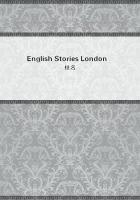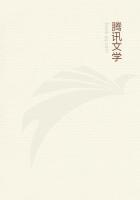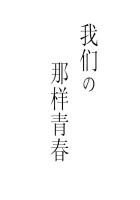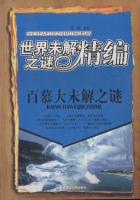But in our case supposed the agents of the Chalons merchants have still in hand at Paris 25,000 livres which they are ordered to remit to Chalons above all the sums mentioned above. If they offer this money to the Cashier of the Tax Office he will reply that he has no more funds at Chalons, and cannot supply them with bills of exchange or cheques on that city. If they offer the money to the banker he will tell them that he has no more funds at Chalons and has no need to draw, but if they will pay him 3 per cent for exchange he will provide cheques. They will offer one or two per cent and at last 2? not being able to do better.
At this price the Banker will decide to give them bills of exchange, that is if they pay to him at Paris 2 livres 10 sols he will supply a bill of exchange for 100 livres on his Chalons correspondent, payable at 10 or 15 days, so as to put his correspondent in a position to make the payment of the 25,000 livres for which he draws upon him. At this rate of exchange he will send him the money by mail or carriage in specie, gold or, in default of gold, silver. He will pay 10 livres for each bag of 1000 livres, or in bank parlance 1 per cent. He will pay his Chalons correspondent as commission 5 livres per bag of 1000 livres or ?per cent, and will keep one per cent for his own profit. On this footing the exchange at Paris for Chalons is at 2?per cent above par, because one pays 2 livres 10 sols for each 100 livres as the commission on exchange.
It is somewhat in this way that the balance of trade is transported from one city to the other through bankers, and generally on a large scale. All those who bear the name of bankers are not accustomed to these transactions and many of them deal only in commissions and bank speculations. I will include among bankers only those who remit money. It is they who always fix the exchange, the charge for which follows the cost and risks of the carriage of specie in the different cases.
The charge of exchange between Paris and Chalons is rarely fixed at more than 2?or 3 per cent over or under par. But from Paris to Amsterdam the charge will amount to 5 or 6 per cent when specie has to be sent. The journey is longer, the risk is greater, more correspondents and commission agents are involved.
From India to England the charge for carriage will be 10 to 12 per cent. From London to Amsterdam it will hardly exceed 2 per cent in peace time.
In our present example it will be said that the exchange at Paris for Chalons will be 2?per cent above par, and at Chalons it will be said that the exchange for Paris is 2?per cent below par, because in these circumstances he who will give money at Chalons for a letter of exchange for Paris will give only 97 livres 10 sols to receive 100 livres at Paris. And it is evident that the City or Place where exchange is above par is in debt to that where it is below par so long as the exchange continues on this basis. Exchange at Paris is 2?per cent above par for Chalons only because Paris is indebted to Chalons and that the money for this debt must be carried from Paris to Chalons. This is why when exchange is commonly seen to be below par in one city as compared with another it may be concluded that this first city owes a balance of trade to the other, and that when the exchange at Madrid or Lisbon is above par for all other countries it shows that these two capitals must send specie to other countries.
In all places and cities which use the same money and the same gold and silver specie like Paris and Chalons sur Marne, London and Bristol, the charge for exchange is known and expressed by giving and taking so much per cent above or below par. When 98 livres are paid in one place to receive 100 livres in another it is said that exchange is about 2 per cent below par when 102 livres, are paid in one place to receive only 100 livres in another it is said that the exchange is exactly 2 per cent above par, when 100 livres are given in one place for 100 livres in another it is said that the exchange is at par. There is no difficulty or mystery in all this.
But when exchange is regulated between two cities or places where the money is quite different, where the coins are of different size, fineness, make, and names, the nature of exchange seems at first more difficult to explain, though at bottom this exchange differs from that between Paris and Chalons only in the jargon of bankers. At Paris one speaks of the Dutch exchange by reckoning the ecu of three livres against so many deniers de gros of Holland, but the parity of exchange between Paris and Amsterdam is always 100 ounces of gold or silver against 100 ounces of gold or silver of the same weight and fineness. 102 ounces paid at Paris to receive 100 ounces at Amsterdam always comes to 2 per cent above par. The banker who effects the remittance of the balance of trade must always know how to calculate parity. But in the language of foreign exchange the price of exchange at London with Amsterdam is made by giving a pound sterling in London to receive 35 Dutch escalins at the bank: with Paris in giving at London 30 deniers or pence sterling to receive at Paris one ecu or three livres tournois. These methods of speech do not say whether exchange is above or below par, but the banker who remits the balance of trade reckons it up well and knows how much foreign money he will receive for the money of his own country which he despatches.
Whether we fix the exchange at London for English silver in Muscovy roubles, in Mark Lubs of Hamburg, in Rixdollars of Germany, in Livres of Flanders, in Ducats of Venice, in Piastres of Genoa or Leghorn, in Millreis or Crusadoes of Portugal, in Pieces of Eight of Spain, or Pistoles, etc. the parity of exchange for all these countries will be always 100 ounces of gold or silver against 100 ounces; and if in the language of exchange it happens that one gives more or less than this parity, it comes to the same in effect as if exchange is said to be so much above or below par, and we shall always know whether or not England owes a balance to the place with which the exchange is settled just as in our example of Paris and Chalons.

